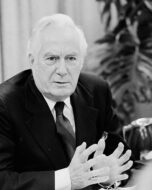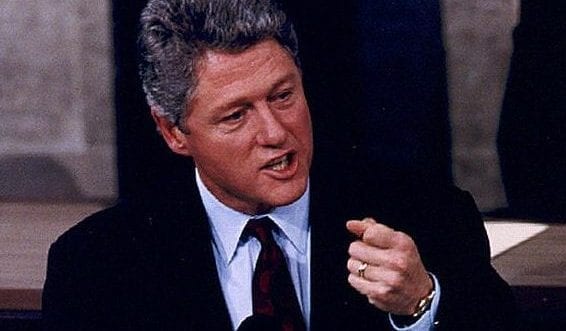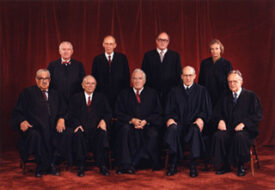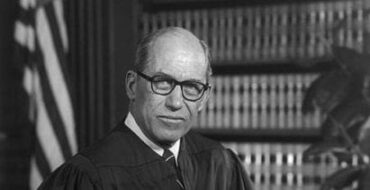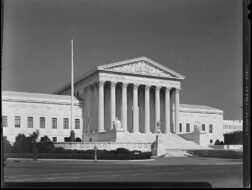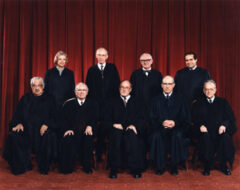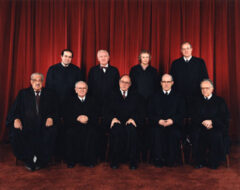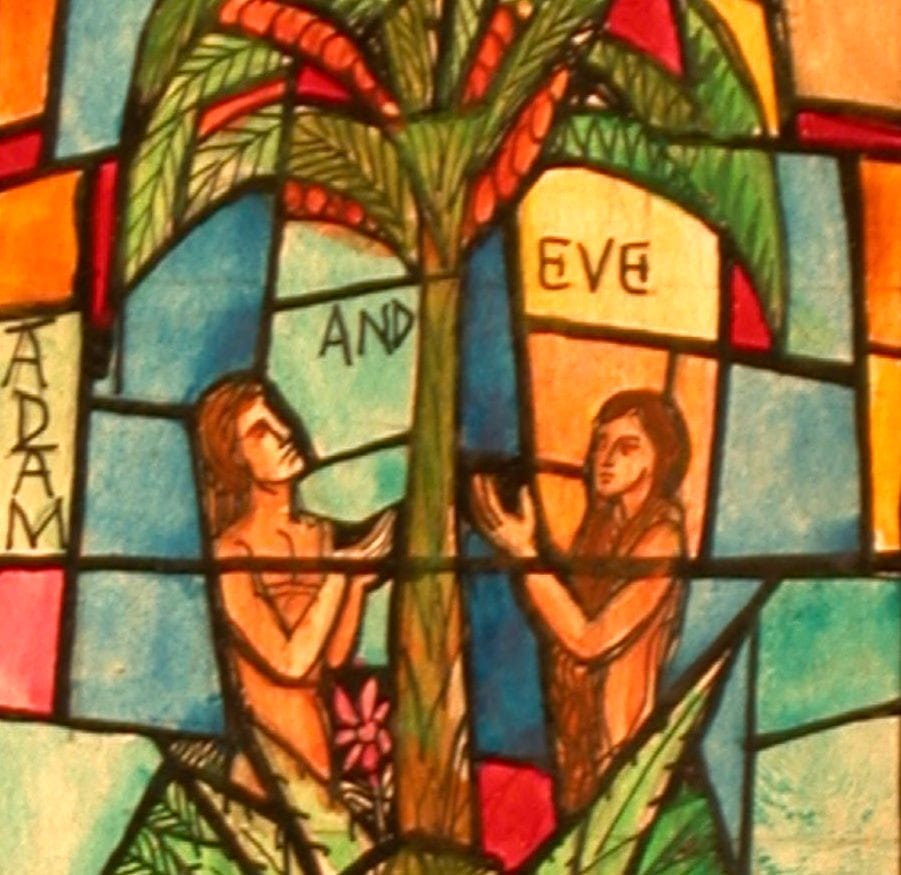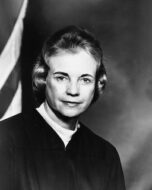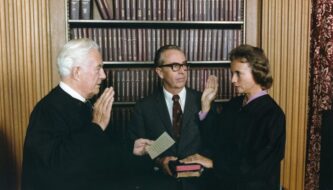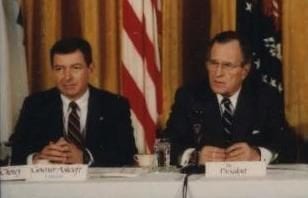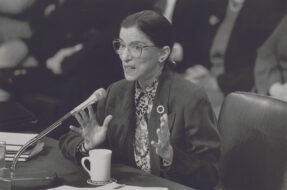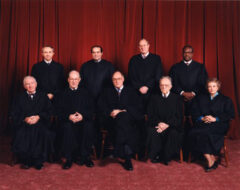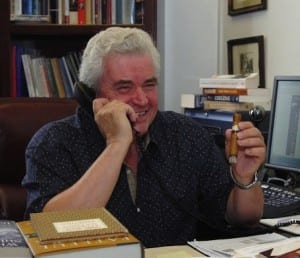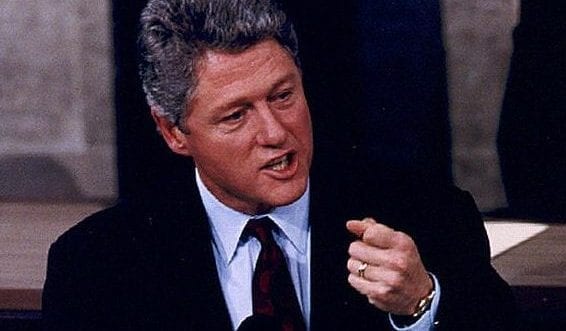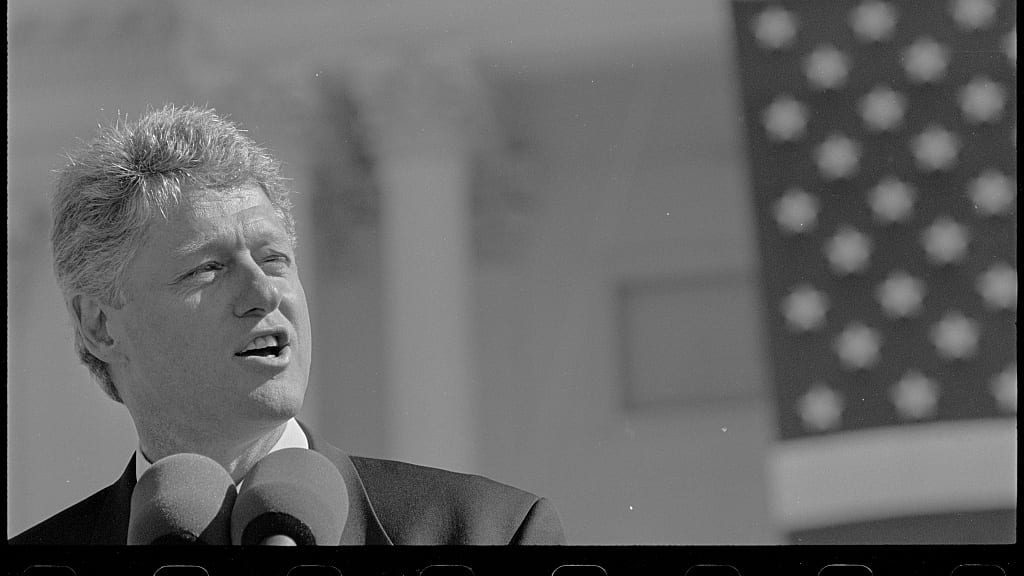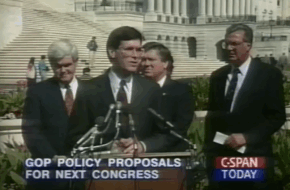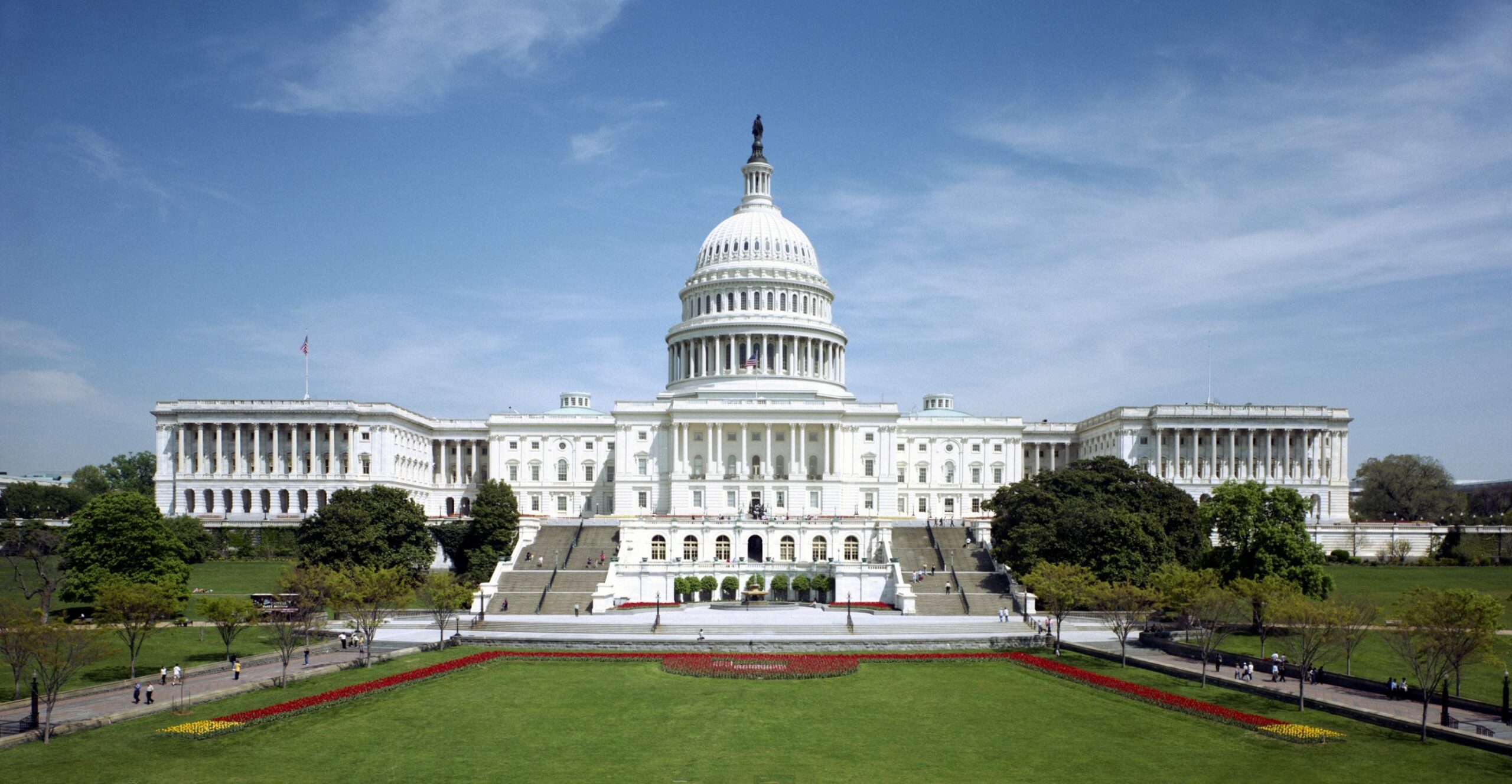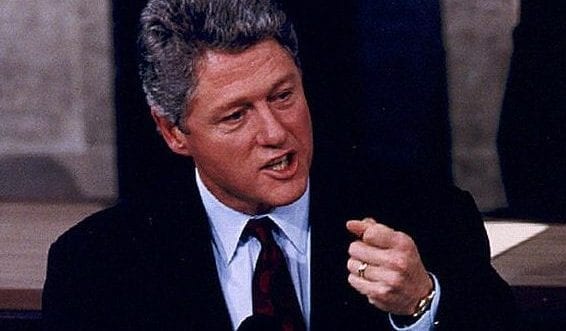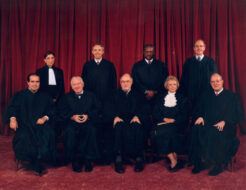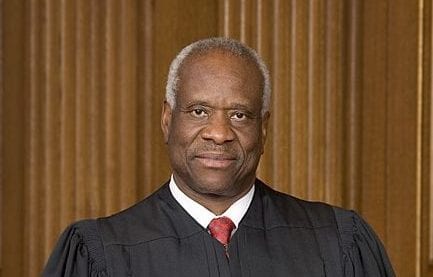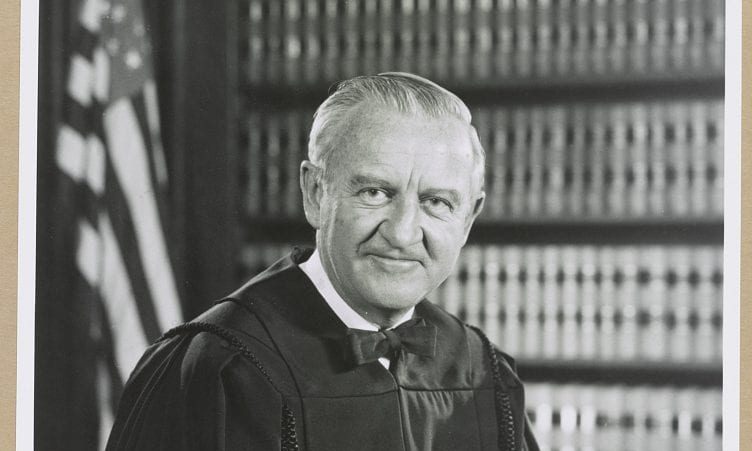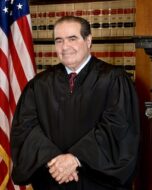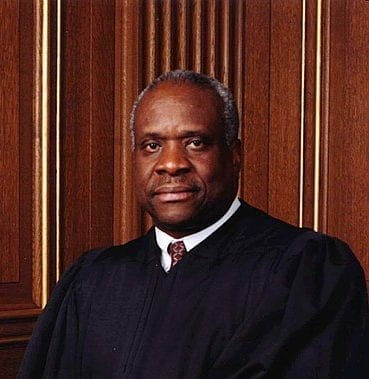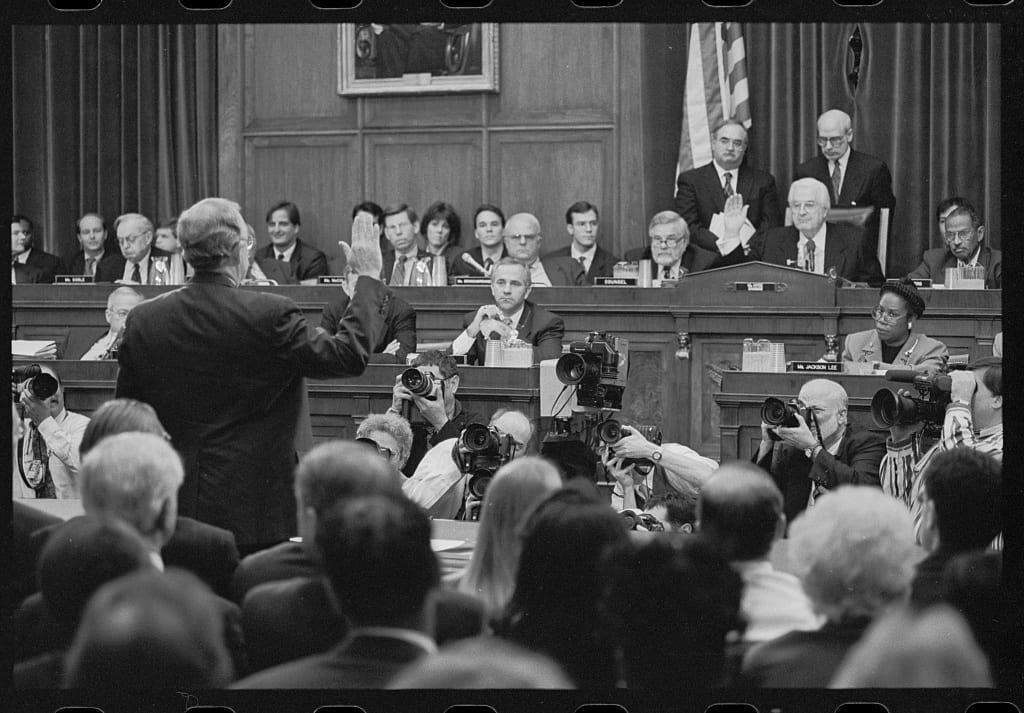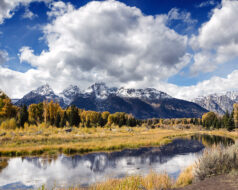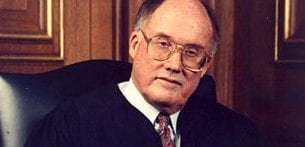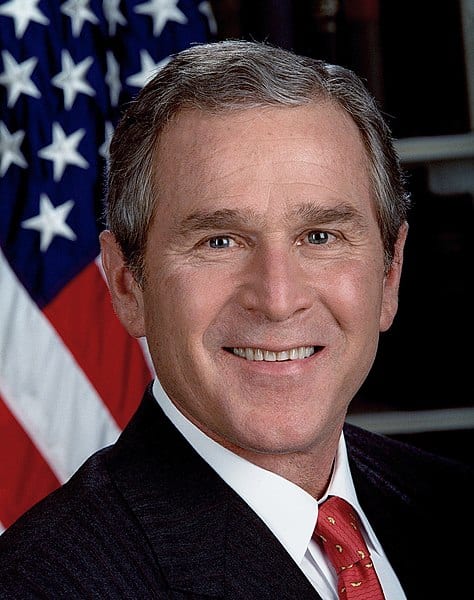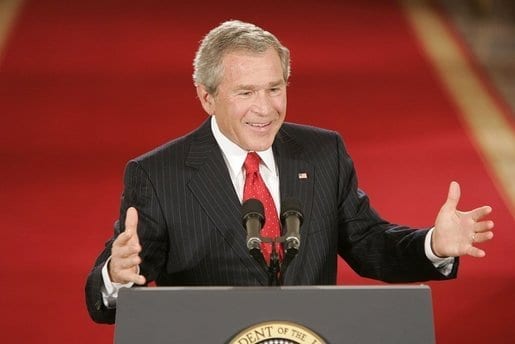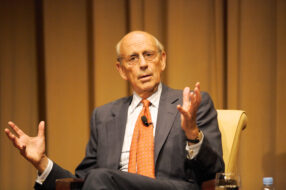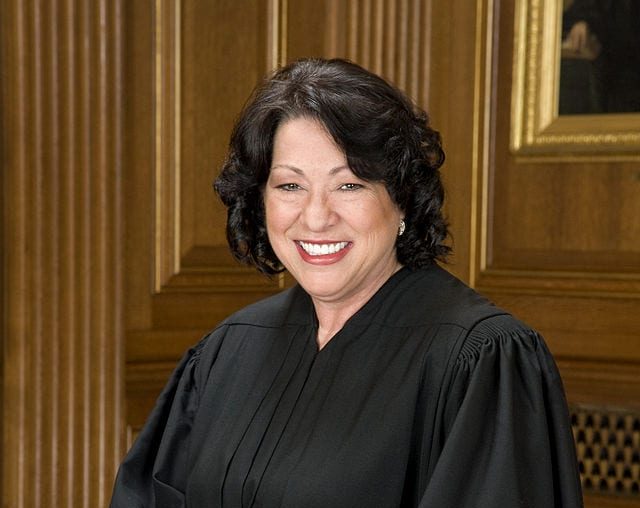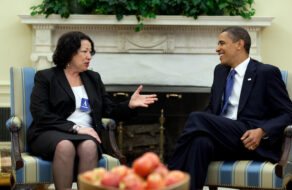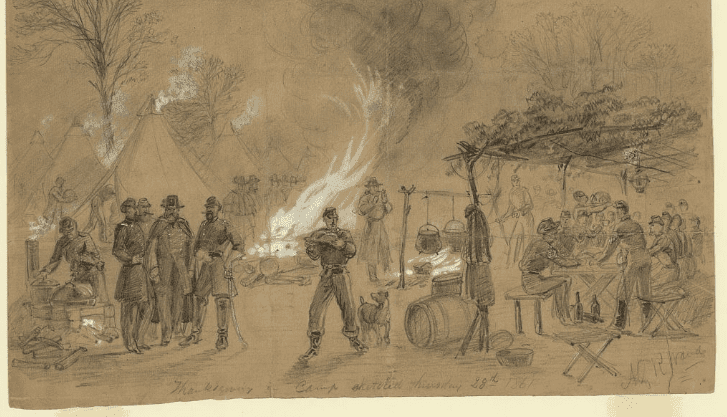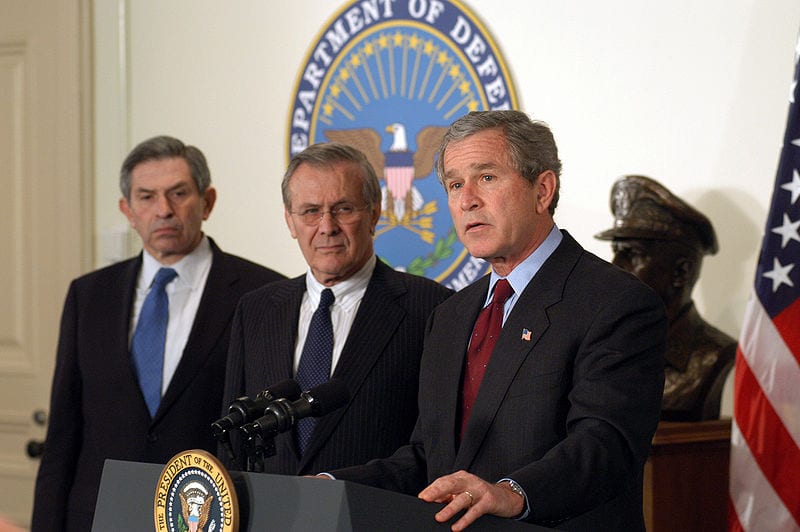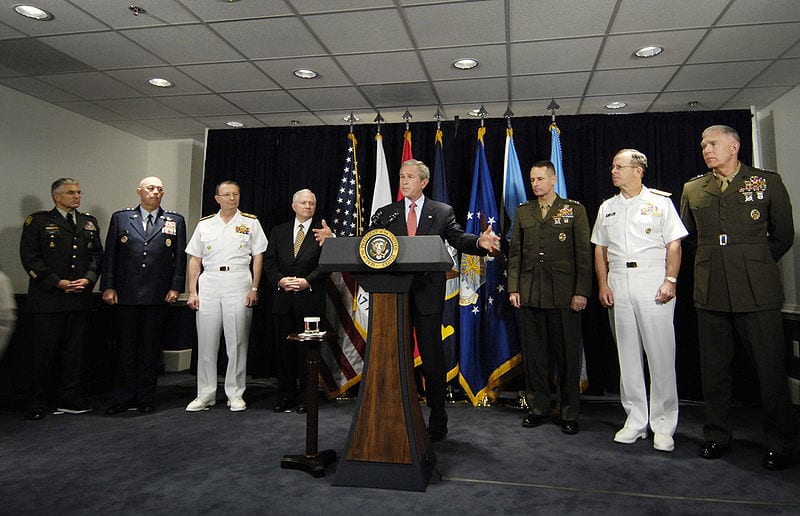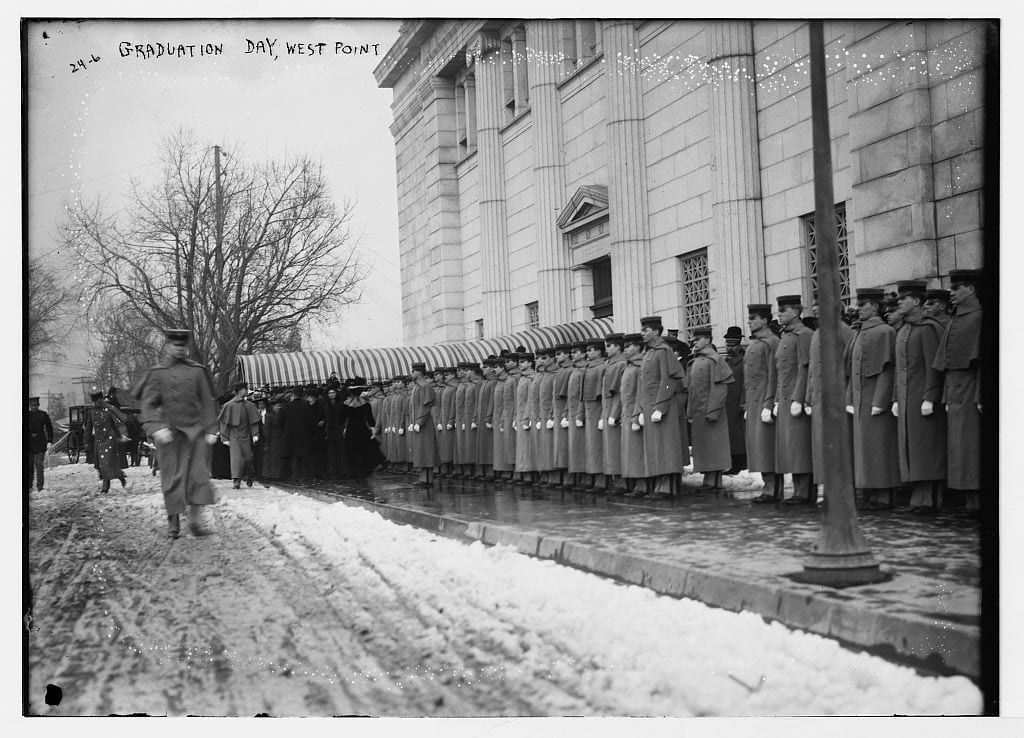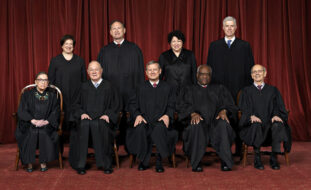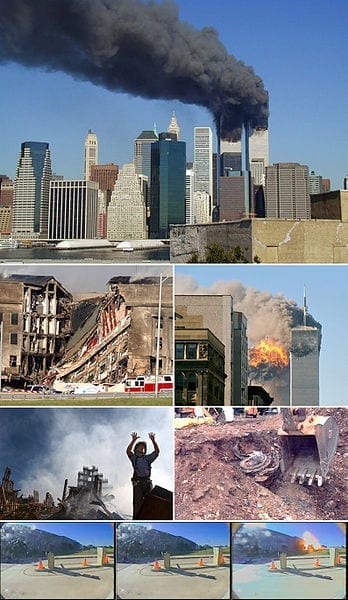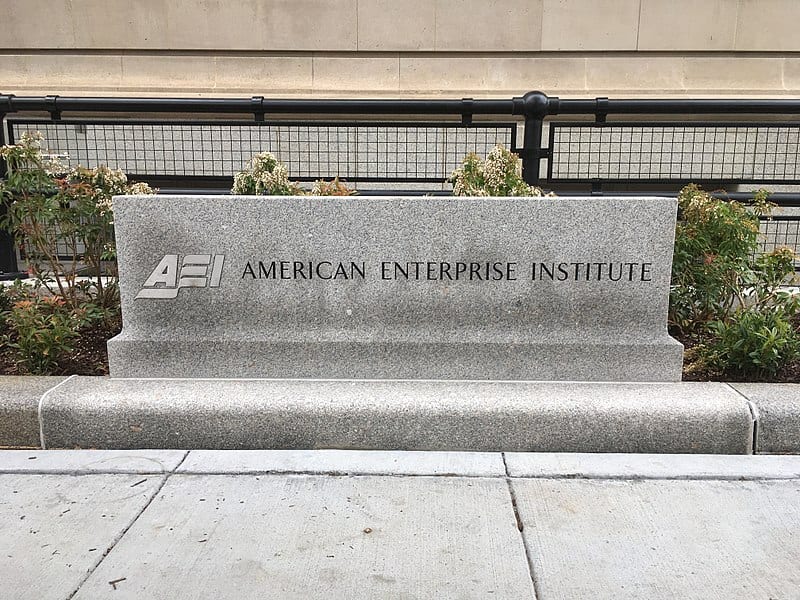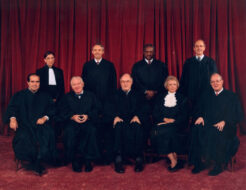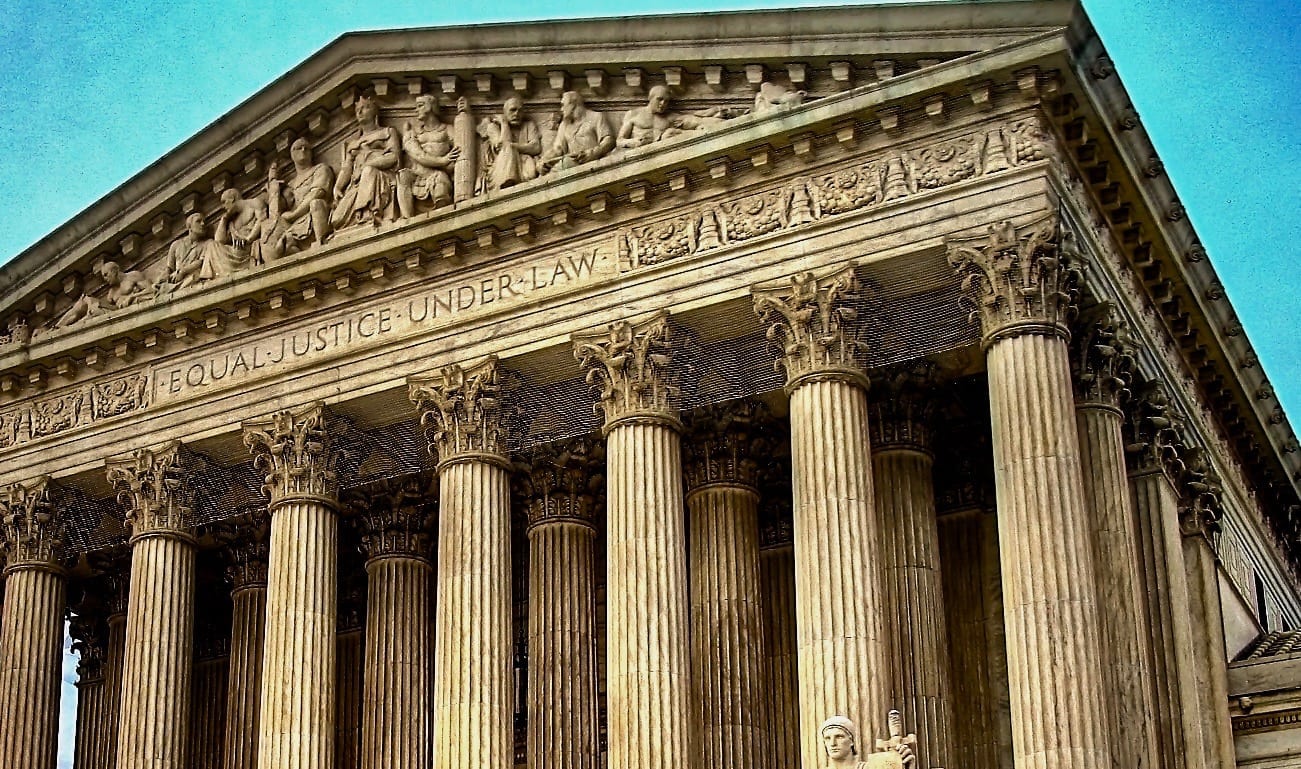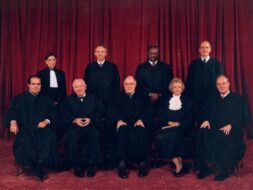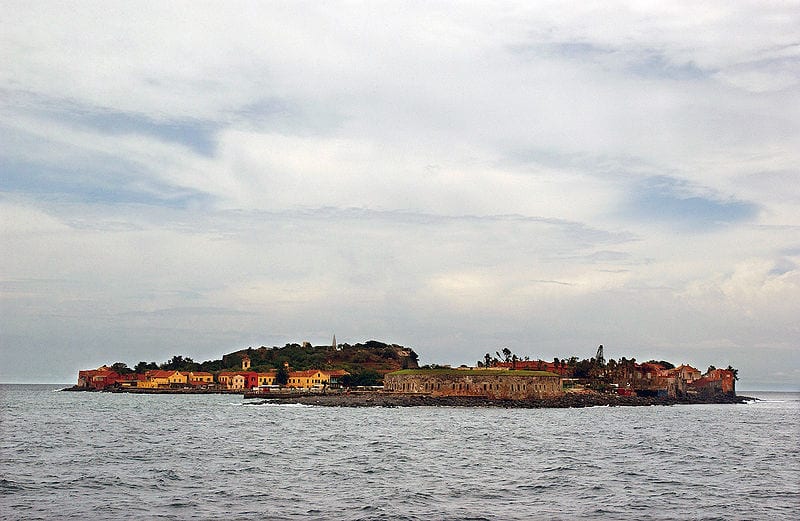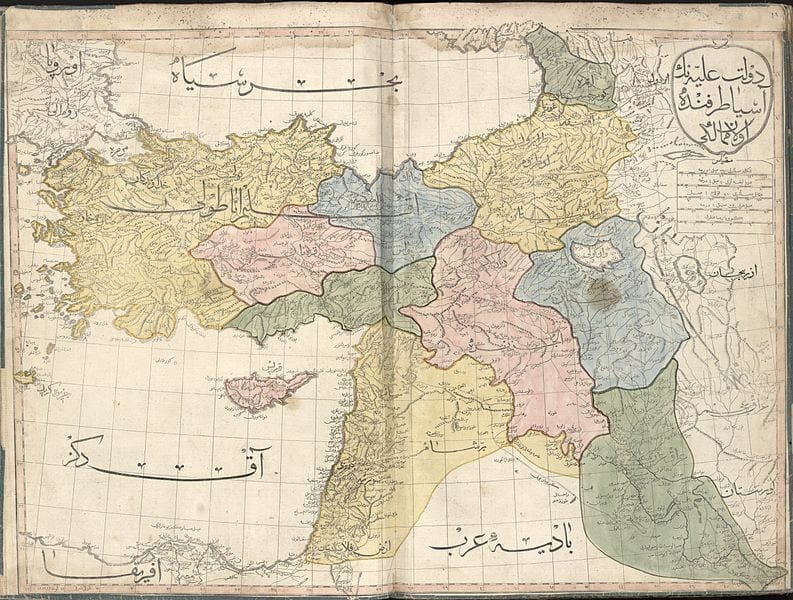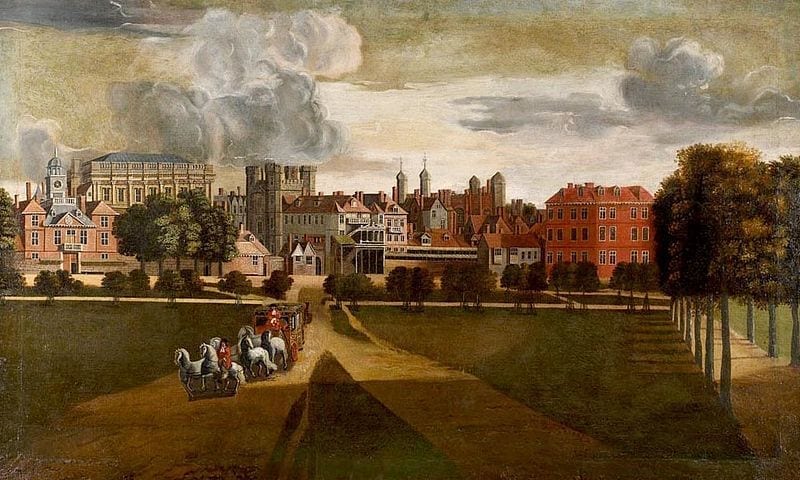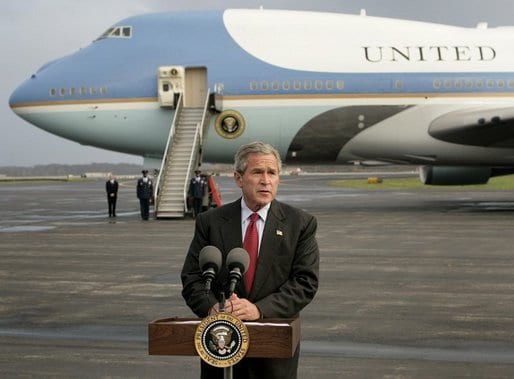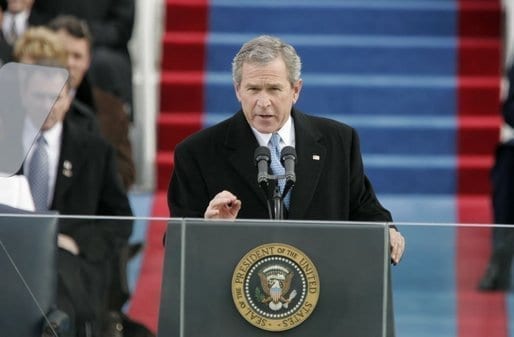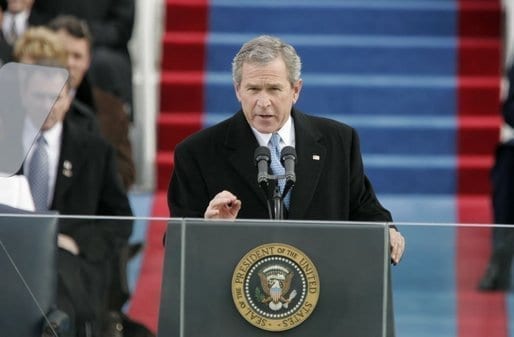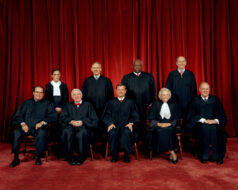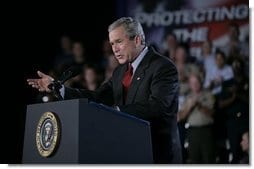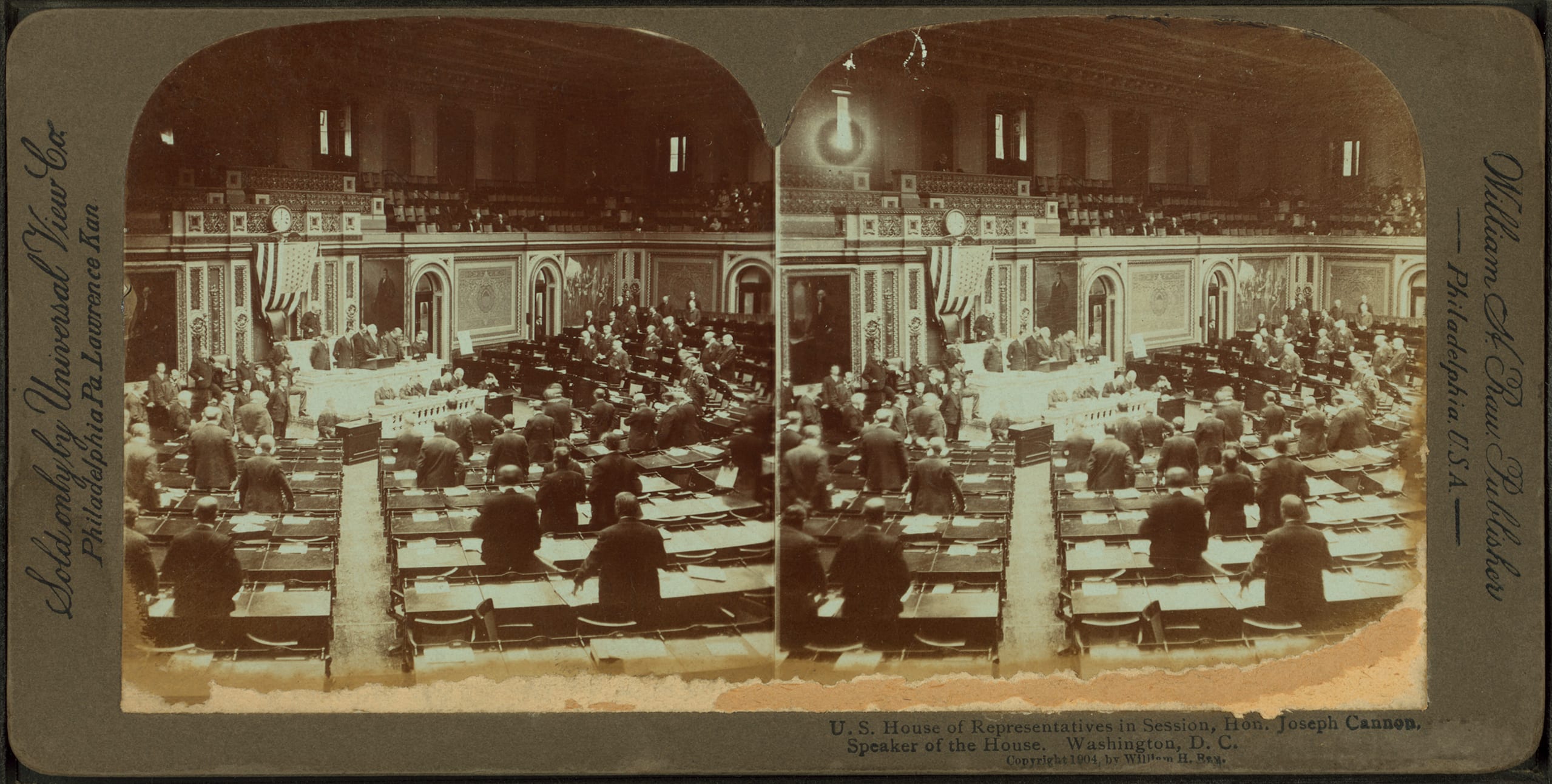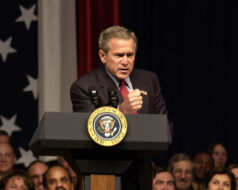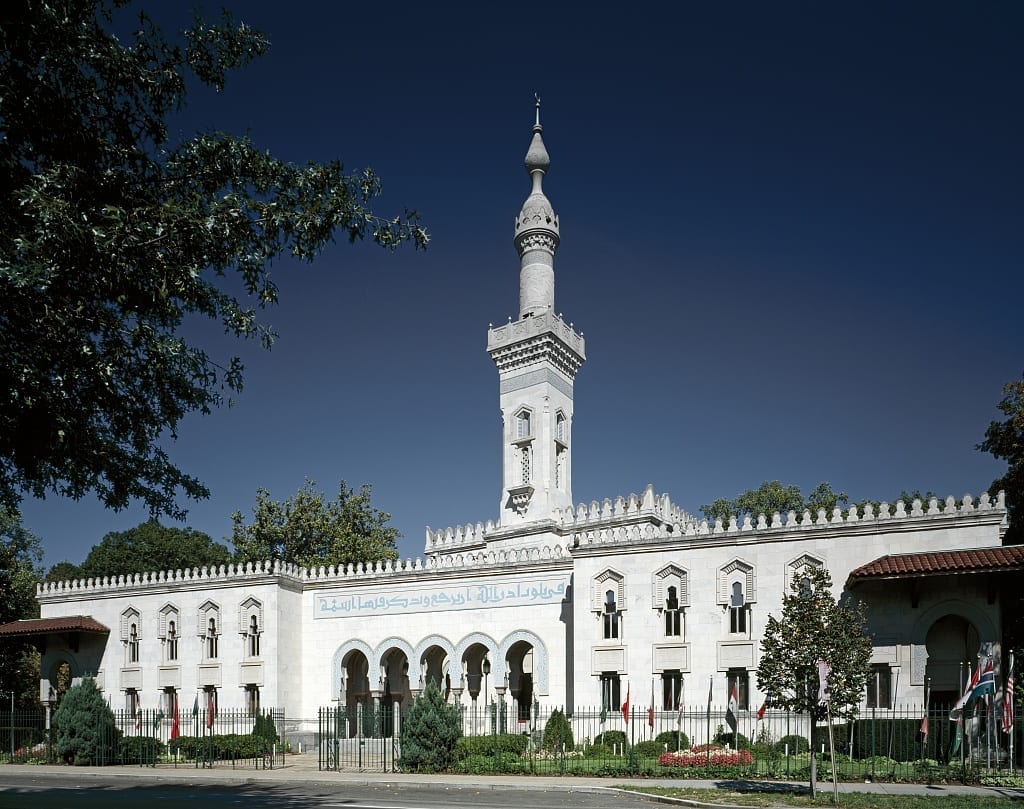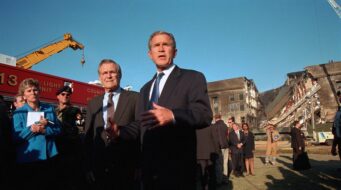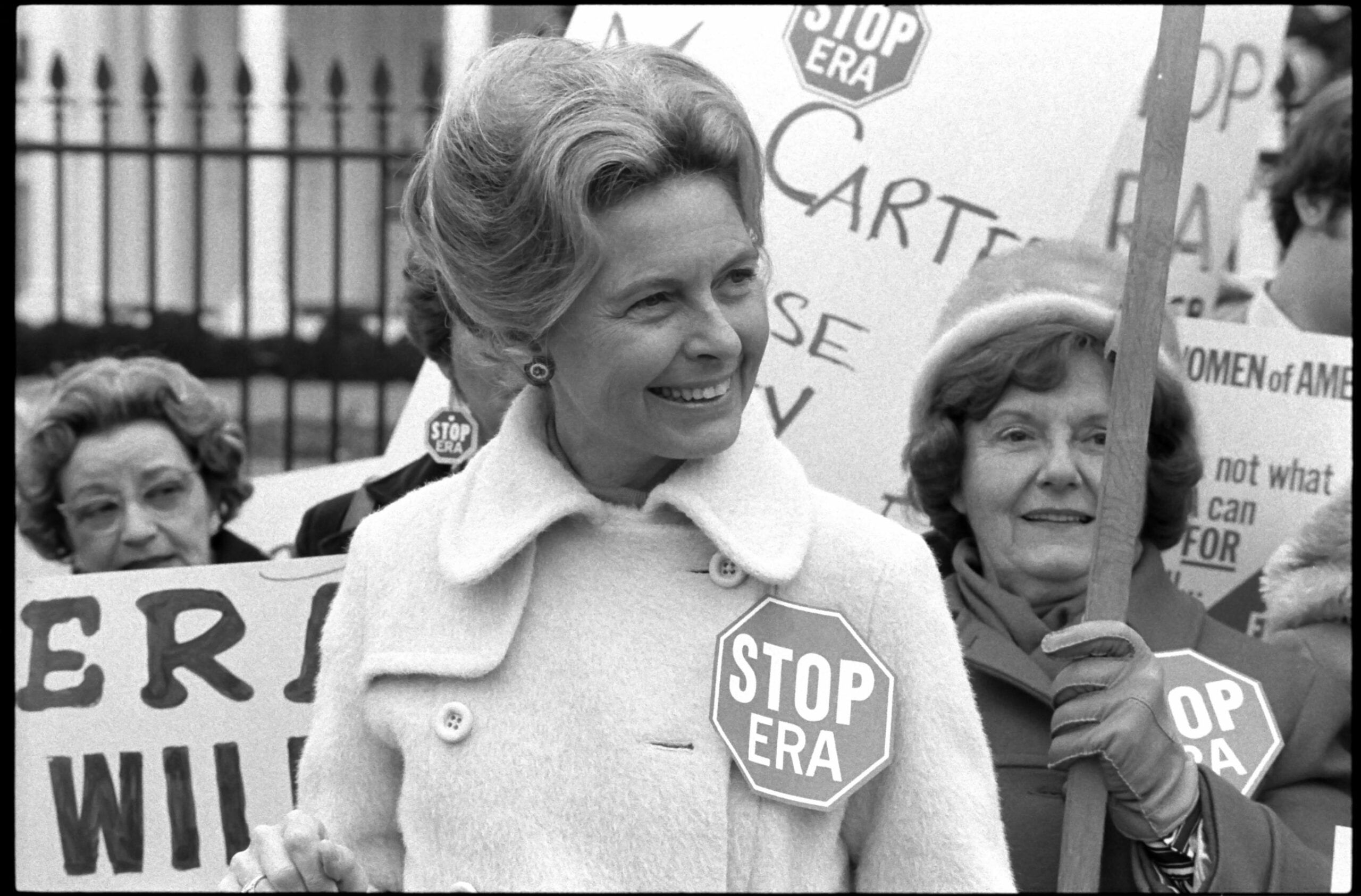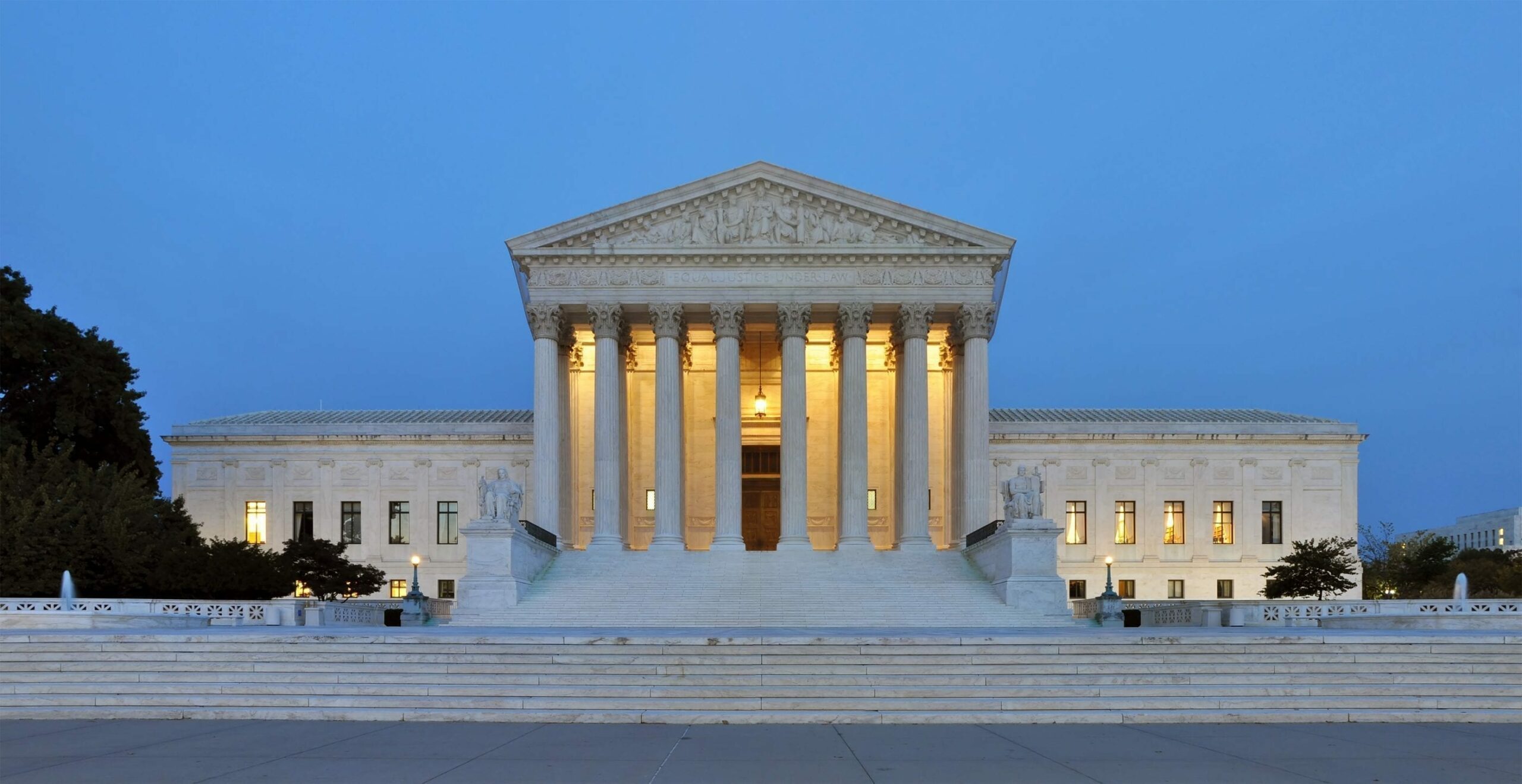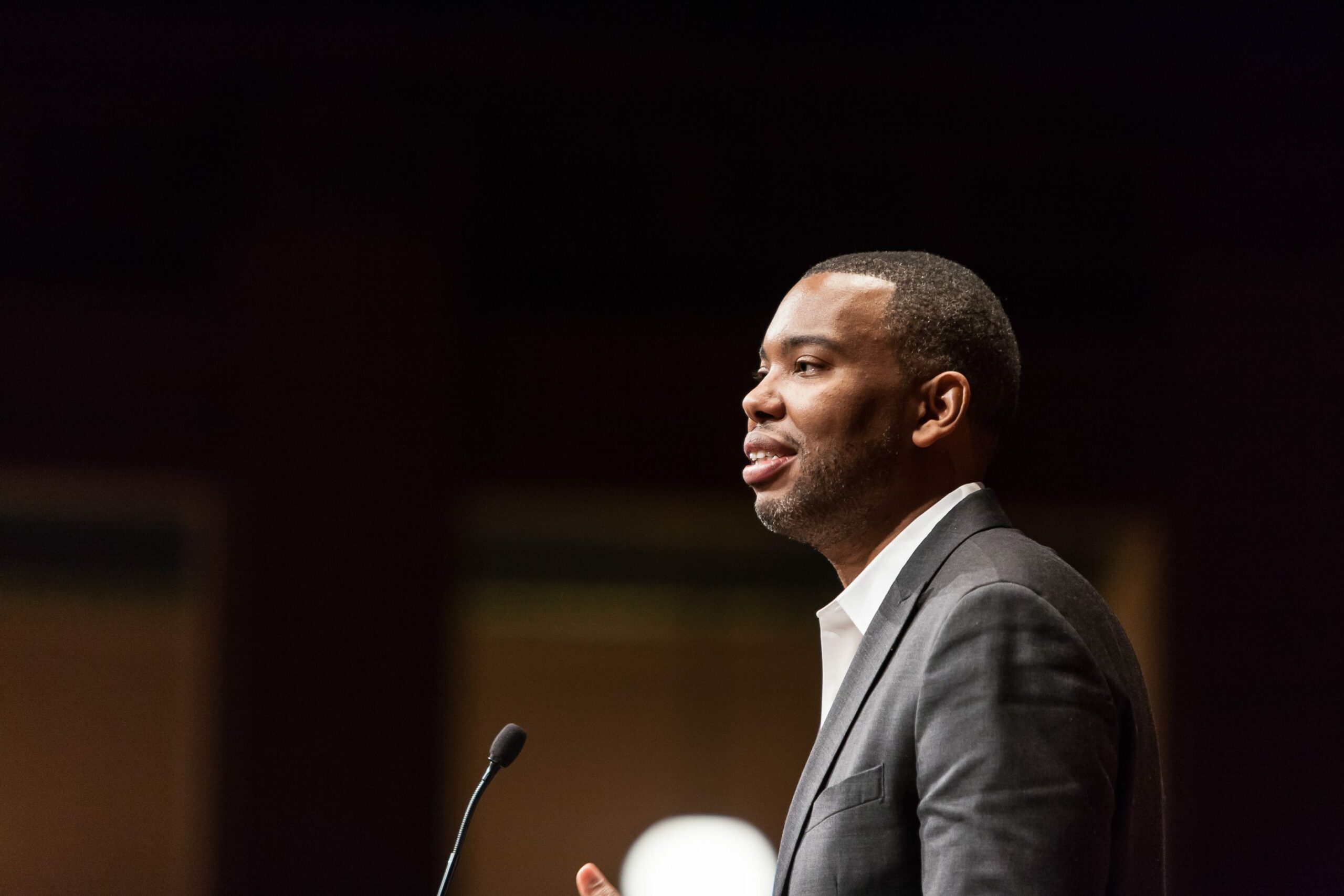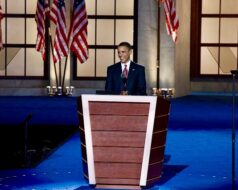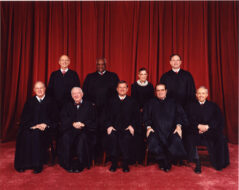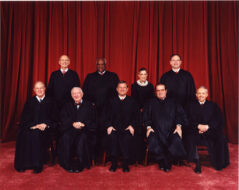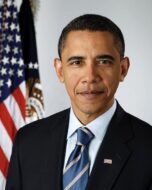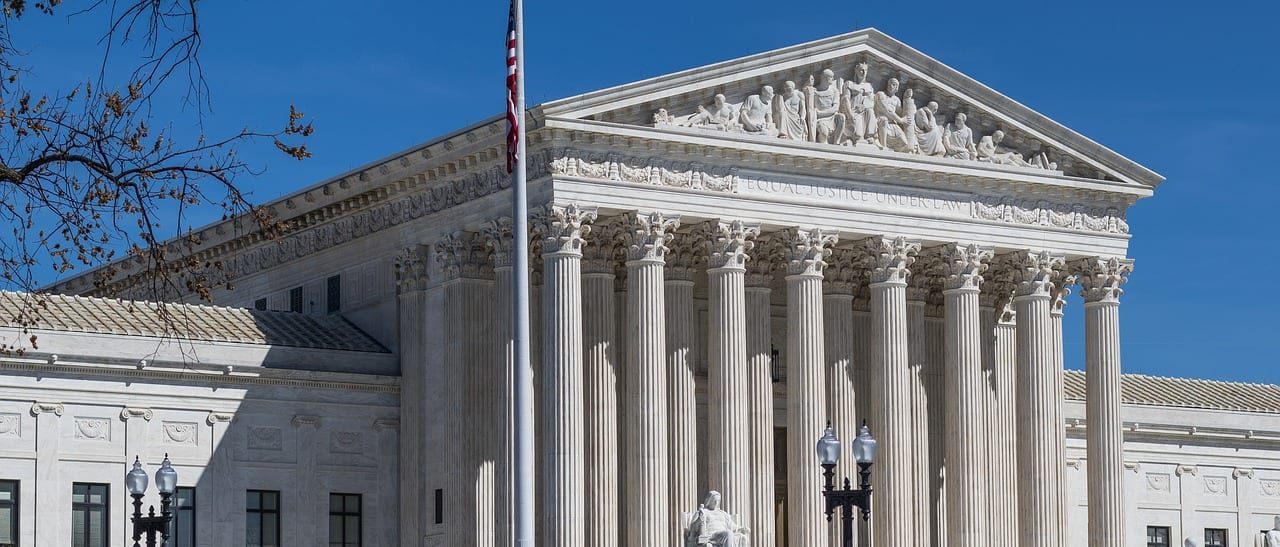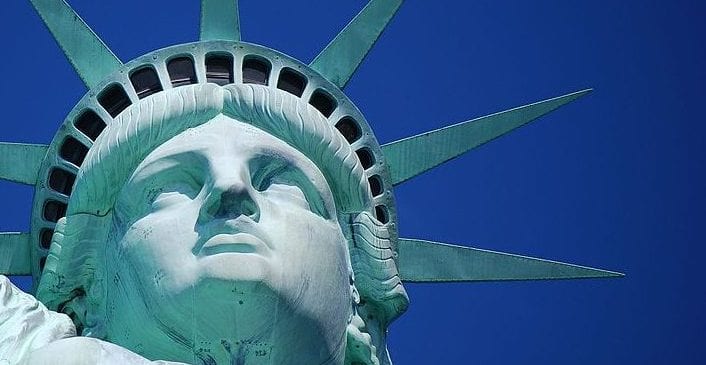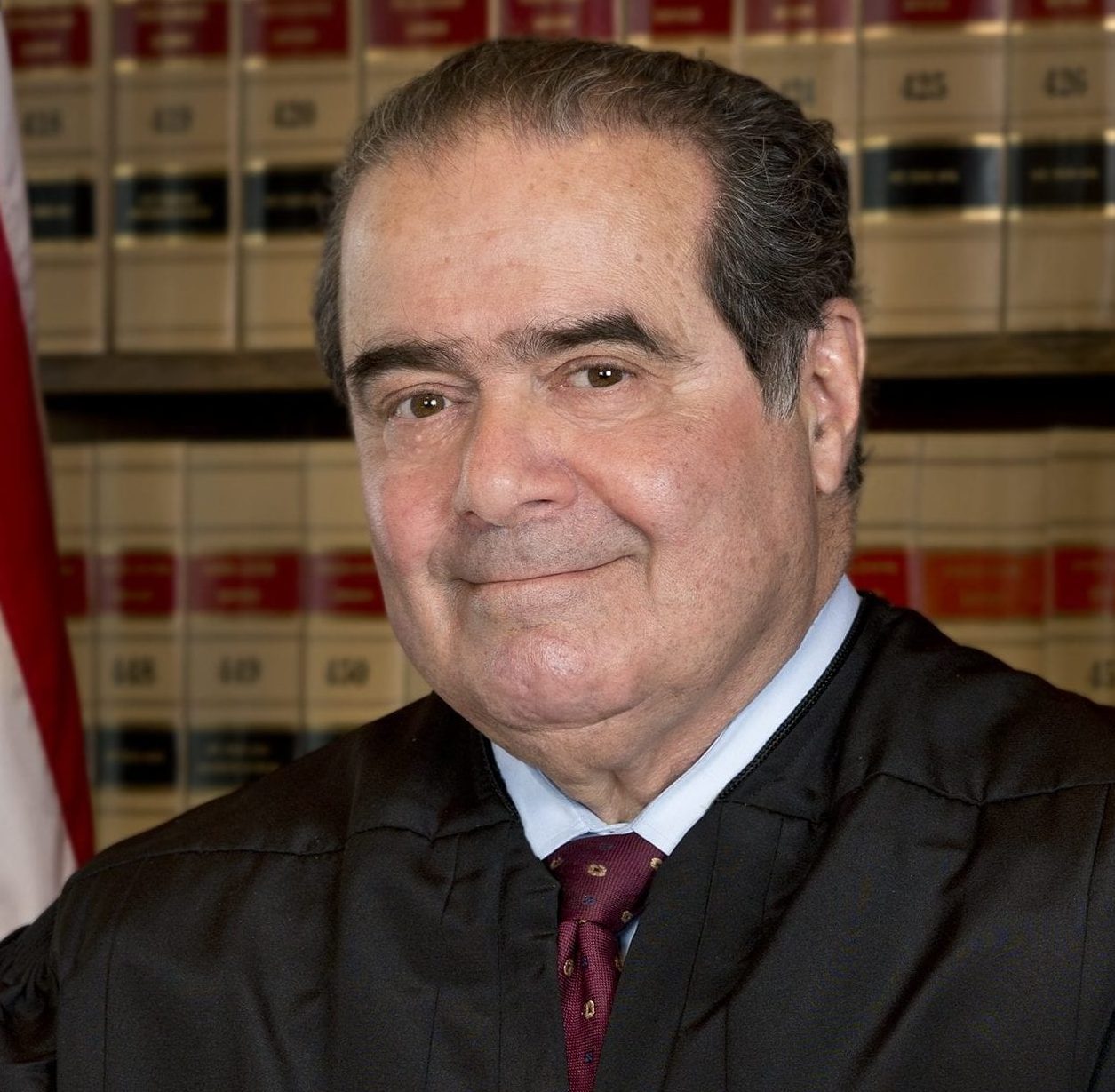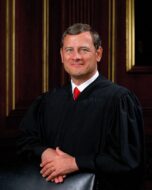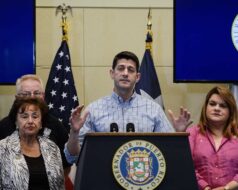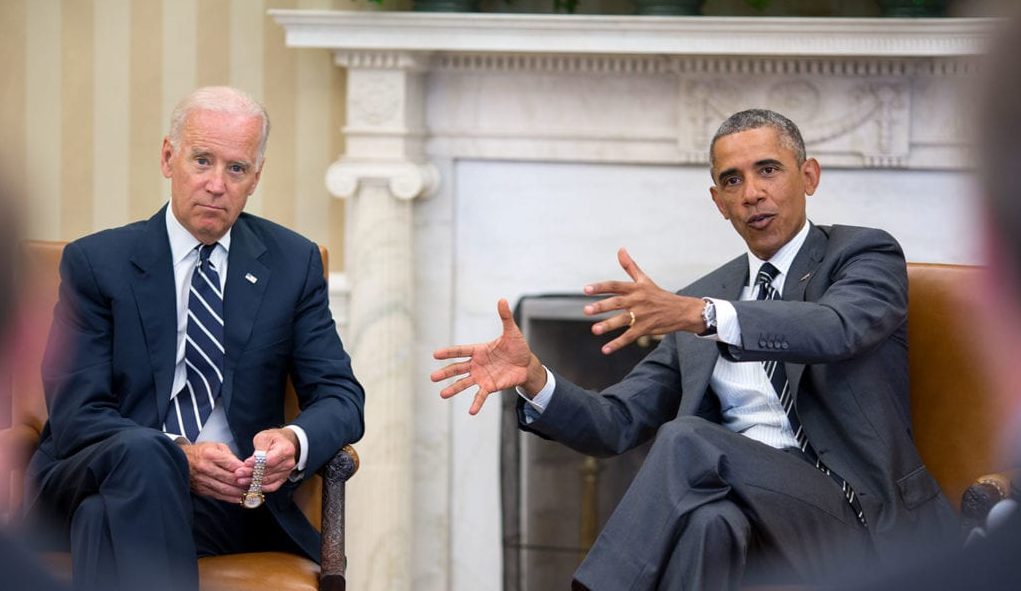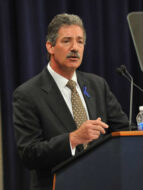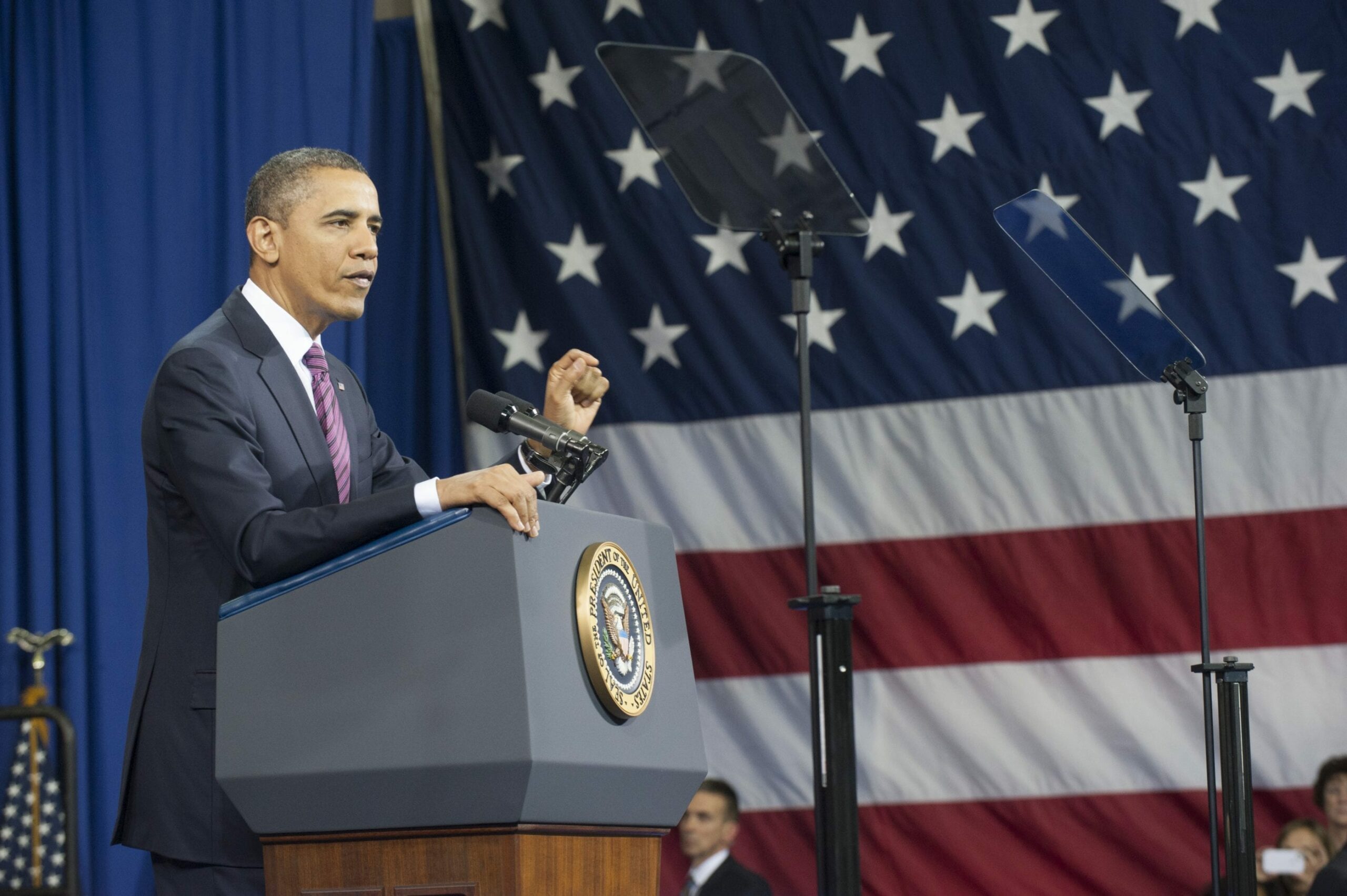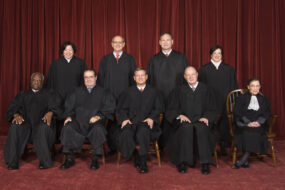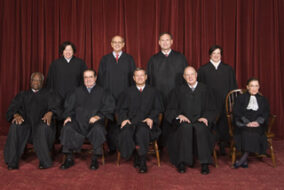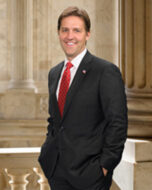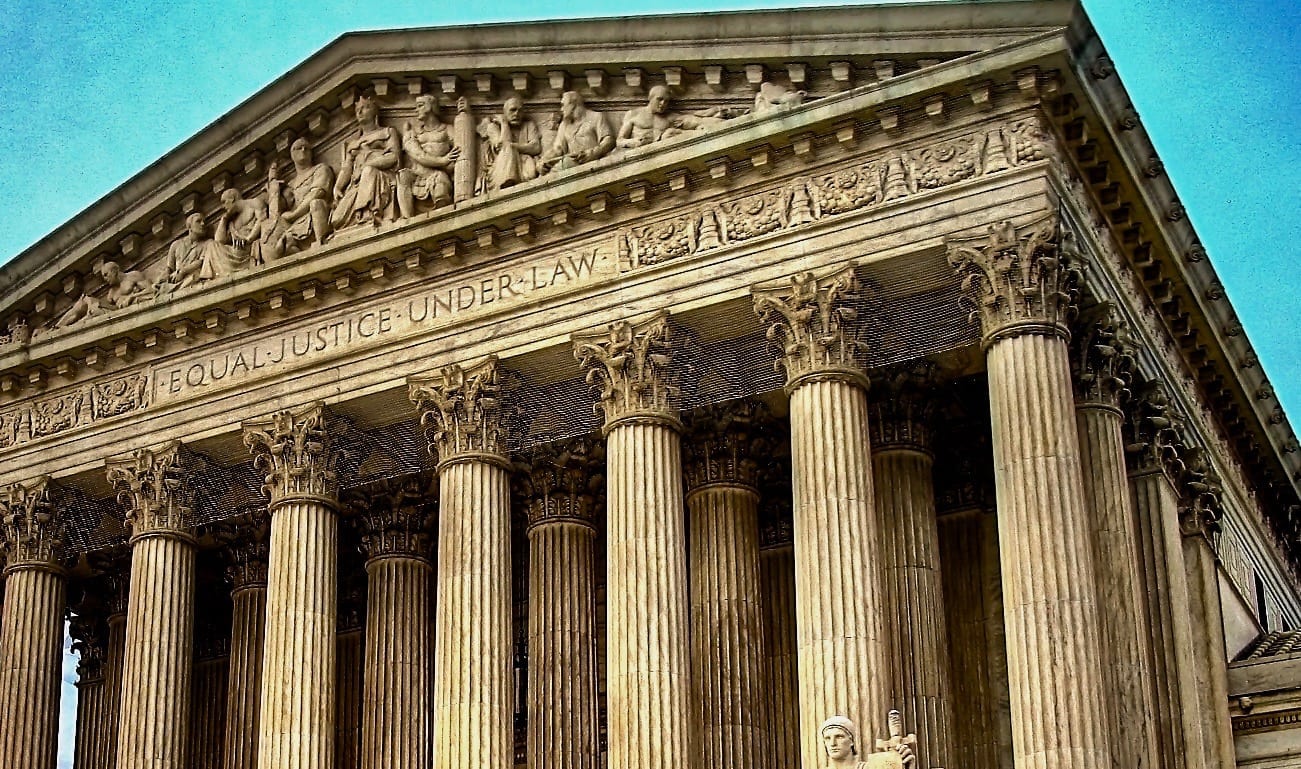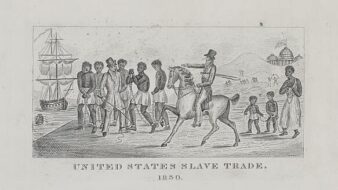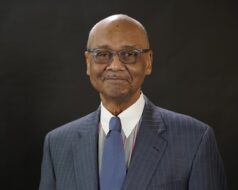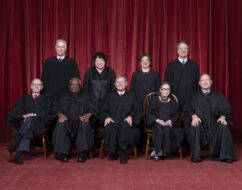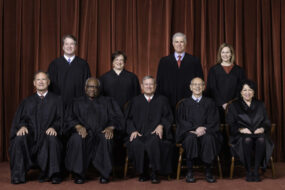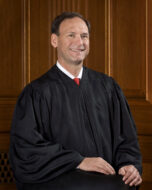


No related resources
Introduction
As President Obama noted in his Address, he spoke in Cairo, Egypt at a time of tension between the United States and the Islamic world. He identified six areas of tension, from violent extremism to economic development, including women’s rights and religious freedom. Throughout, the President sought to establish common ground with his Muslim audience by appealing to such principles as humanity, human nature, and progress, and the hopes and dreams that all people have in common, such as the aspirations “to live in peace and security, to get an education and to work with dignity, to love our families, our communities, and our God.”
One may wonder, however, if these common aspirations are experienced in the same way. Are the principles to which the President appealed in fact held in common? Do all of the devout accept human nature, human rights, and progress as guiding principles? This is a question for devout Christians as well as devout Muslims. In his speech, the President appealed for cooperation between the United States and the Islamic world by saying that we have the ability “to reimagine the world, to remake this world.” But if, as the Bible teaches, God made the world and saw that it was good, why would humans need to remake it? To the devout, will not such an aspiration seem impious?
No doubt, many devout Christians and Muslims would agree with the principles and approach President Obama enunciated in his speech. However, in speaking from the tradition of liberal Protestantism (“Shall the Fundamentalists Win?” (1922)), the President demonstrated in his Cairo speech that religion may have an unsettling effect not just in American but also in world politics.
I am honored to be in the timeless city of Cairo and to be hosted by two remarkable institutions. For over a thousand years, Al-Azhar1 has stood as a beacon of Islamic learning, and for over a century, Cairo University has been a source of Egypt’s advancement. And together, you represent the harmony between tradition and progress. I’m grateful for your hospitality and the hospitality of the people of Egypt. And I’m also proud to carry with me the good will of the American people and a greeting of peace from Muslim communities in my country: As-salaamu alaykum.2
We meet at a time of great tension between the United States and Muslims around the world, tension rooted in historical forces that go beyond any current policy debate. The relationship between Islam and the West includes centuries of coexistence and cooperation, but also conflict and religious wars. More recently, tension has been fed by colonialism that denied rights and opportunities to many Muslims and a cold war in which Muslim-majority countries were too often treated as proxies without regard to their own aspirations. Moreover, the sweeping change brought by modernity and globalization led many Muslims to view the West as hostile to the traditions of Islam.
Violent extremists have exploited these tensions in a small, but potent minority of Muslims. The attacks of September 11, 2001, and the continued efforts of these extremists to engage in violence against civilians has led some in my country to view Islam as inevitably hostile not only to America and Western countries, but also to human rights. All this has bred more fear and more mistrust.
So long as our relationship is defined by our differences, we will empower those who sow hatred rather than peace, those who promote conflict rather than the cooperation that can help all of our people achieve justice and prosperity. And this cycle of suspicion and discord must end.
I’ve come here to Cairo to seek a new beginning between the United States and Muslims around the world, one based on mutual interest and mutual respect and one based upon the truth that America and Islam are not exclusive and need not be in competition. Instead, they overlap and share common principles, principles of justice and progress, tolerance and the dignity of all human beings.
I do so recognizing that change cannot happen overnight. I know there’s been a lot of publicity about this speech, but no single speech can eradicate years of mistrust. Nor can I answer in the time that I have this afternoon all the complex questions that brought us to this point. But I am convinced that in order to move forward, we must say openly to each other the things we hold in our hearts and that too often are said only behind closed doors. There must be a sustained effort to listen to each other, to learn from each other, to respect one another, and to seek common ground. As the Holy Koran tells us: “Be conscious of God and speak always the truth.” That is what I will try to do today, to speak the truth as best I can, humbled by the task before us and firm in my belief that the interests we share as human beings are far more powerful than the forces that drive us apart.
Now part of this conviction is rooted in my own experience. I’m a Christian, but my father came from a Kenyan family that includes generations of Muslims. As a boy, I spent several years in Indonesia and heard the call of the azaan3 at the break of dawn and at the fall of dusk. As a young man, I worked in Chicago communities where many found dignity and peace in their Muslim faith. As a student of history, I also know civilization’s debt to Islam.
It was Islam, at places like Al-Azhar, that carried the light of learning through so many centuries, paving the way for Europe’s renaissance and enlightenment. It was innovation in Muslim communities that developed the order of algebra, our magnetic compass and tools of navigation, our mastery of pens and printing, our understanding of how disease spreads and how it can be healed. Islamic culture has given us majestic arches and soaring spires, timeless poetry and cherished music, elegant calligraphy and places of peaceful contemplation. And throughout history, Islam has demonstrated through words and deeds the possibilities of religious tolerance and racial equality.
I also know that Islam has always been a part of America’s story. The first nation to recognize my country was Morocco. In signing the Treaty of Tripoli in 1796, our second President, John Adams, wrote: “The United States has in itself no character of enmity against the laws, religion, or tranquility of Muslims.” And since our founding, American Muslims have enriched the United States. They have fought in our wars; they have served in our government; they have stood for civil rights; they have started businesses; they have taught at our universities; they’ve excelled in our sports arenas; they’ve won Nobel Prizes, built our tallest building, and lit the Olympic Torch. And when the first Muslim American was recently elected to Congress, he took the oath to defend our Constitution using the same Holy Koran that one of our Founding Fathers, Thomas Jefferson, kept in his personal library.
…Just as Muslims do not fit a crude stereotype, America is not the crude stereotype of a self-interested empire. The United States has been one of the greatest sources of progress that the world has ever known. We were born out of revolution against an empire. We were founded upon the ideal that all are created equal, and we have shed blood and struggled for centuries to give meaning to those words, within our borders and around the world. We are shaped by every culture, drawn from every end of the Earth, and dedicated to a simple concept: E pluribus unum—”Out of many, one.”
Now, much has been made of the fact that an African American with the name Barack Hussein Obama could be elected President. But my personal story is not so unique. The dream of opportunity for all people has not come true for everyone in America, but its promise exists for all who come to our shores, and that includes nearly 7 million American Muslims in our country today, who, by the way, enjoy incomes and educational levels that are higher than the American average.
Moreover, freedom in America is indivisible from the freedom to practice one’s religion. That is why there is a mosque in every State in our Union and over 1,200 mosques within our borders. That’s why the United States Government has gone to court to protect the right of women and girls to wear the hijab and to punish those who would deny it.
So let there be no doubt, Islam is a part of America. And I believe that America holds within her the truth that regardless of race, religion, or station in life, all of us share common aspirations to live in peace and security, to get an education and to work with dignity, to love our families, our communities, and our God. These things we share. This is the hope of all humanity.
Of course, recognizing our common humanity is only the beginning of our task. Words alone cannot meet the needs of our people. These needs will be met only if we act boldly in the years ahead and if we understand that the challenges we face are shared and our failure to meet them will hurt us all. For we have learned from recent experience that when a financial system weakens in one country, prosperity is hurt everywhere. When a new flu infects one human being, all are at risk. When one nation pursues a nuclear weapon, the risk of nuclear attack rises for all nations. When violent extremists operate in one stretch of mountains, people are endangered across an ocean. When innocents in Bosnia and Darfur are slaughtered, that is a stain on our collective conscience. That is what it means to share this world in the 21st century. That is the responsibility we have to one another as human beings.
And this is a difficult responsibility to embrace, for human history has often been a record of nations and tribes and, yes, religions subjugating one another in pursuit of their own interests. Yet in this new age, such attitudes are self-defeating. Given our interdependence, any world order that elevates one nation or group of people over another will inevitably fail. So whatever we think of the past, we must not be prisoners to it. Our problems must be dealt with through partnership; our progress must be shared.
Now, that does not mean we should ignore sources of tension. Indeed, it suggests the opposite. We must face these tensions squarely. And so in that spirit, let me speak as clearly and as plainly as I can about some specific issues that I believe we must finally confront together.
The first issue that we have to confront is violent extremism in all of its forms. In Ankara, I made clear that America is not, and never will be, at war with Islam. We will, however, relentlessly confront violent extremists who pose a grave threat to our security, because we reject the same thing that people of all faiths reject: the killing of innocent men, women, and children. And it is my first duty as President to protect the American people.…
[N]one of us should tolerate these extremists. They have killed in many countries. They have killed people of different faiths, but more than any other, they have killed Muslims. Their actions are irreconcilable with the rights of human beings, the progress of nations, and with Islam. The Holy Koran teaches that “whoever kills an innocent, it is as if he has killed all mankind.” And the Holy Koran also says, “whoever saves a person, it is as if he has saved all mankind.” The enduring faith of over a billion people is so much bigger than the narrow hatred of a few. Islam is not part of the problem in combating violent extremism, it is an important part of promoting peace.
…America will defend itself, respectful of the sovereignty of nations and the rule of law, and we will do so in partnership with Muslim communities, which are also threatened. The sooner the extremists are isolated and unwelcome in Muslim communities, the sooner we will all be safer.
The second major source of tension that we need to discuss is the situation between Israelis, Palestinians, and the Arab world. America’s strong bonds with Israel are well known. This bond is unbreakable. It is based upon cultural and historical ties and the recognition that the aspiration for a Jewish homeland is rooted in a tragic history that cannot be denied.…
Around the world, the Jewish people were persecuted for centuries, and anti-Semitism in Europe culminated in an unprecedented Holocaust. Tomorrow I will visit Buchenwald, which was part of a network of camps where Jews were enslaved, tortured, shot, and gassed to death by the Third Reich. Six million Jews were killed, more than the entire Jewish population of Israel today. Denying that fact is baseless, it is ignorant, and it is hateful. Threatening Israel with destruction or repeating vile stereotypes about Jews is deeply wrong and only serves to evoke in the minds of Israelis this most painful of memories while preventing the peace that the people of this region deserve.
On the other hand, it is also undeniable that the Palestinian people, Muslims and Christians, have suffered in pursuit of a homeland. For more than 60 years, they’ve endured the pain of dislocation. Many wait in refugee camps in the West Bank, Gaza, and neighboring lands for a life of peace and security that they have never been able to lead. They endure the daily humiliations, large and small, that come with occupation. So let there be no doubt, the situation for the Palestinian people is intolerable, and America will not turn our backs on the legitimate Palestinian aspiration for dignity, opportunity, and a state of their own.
For decades then, there has been a stalemate: two peoples with legitimate aspirations, each with a painful history that makes compromise elusive. It’s easy to point fingers, for Palestinians to point to the displacement brought about by Israel’s founding and for Israelis to point to the constant hostility and attacks throughout its history from within its borders, as well as beyond. But if we see this conflict only from one side or the other, then we will be blind to the truth. The only resolution is for the aspirations of both sides to be met through two states, where Israelis and Palestinians each live in peace and security.…
Too many tears have been shed. Too much blood has been shed. All of us have a responsibility to work for the day when the mothers of Israelis and Palestinians can see their children grow up without fear, when the Holy Land of the three great faiths is the place of peace that God intended it to be, when Jerusalem is a secure and lasting home for Jews and Christians and Muslims and a place for all of the children of Abraham to mingle peacefully together as in the story of Isra, when Moses, Jesus, and Muhammed, peace be upon them, joined in prayer.
The third source of tension is our shared interest in the rights and responsibilities of nations on nuclear weapons.… For many years, Iran has defined itself in part by its opposition to my country, and there is in fact a tumultuous history between us.… Rather than remain trapped in the past, I’ve made it clear to Iran’s leaders and people that my country is prepared to move forward. The question now is not what Iran is against, but rather what future it wants to build.…
The fourth issue that I will address is democracy. I know there has been controversy about the promotion of democracy in recent years, and much of this controversy is connected to the war in Iraq. So let me be clear: No system of government can or should be imposed by one nation on any other.
That does not lessen my commitment, however, to governments that reflect the will of the people. Each nation gives life to this principle in its own way, grounded in the traditions of its own people. America does not presume to know what is best for everyone, just as we would not presume to pick the outcome of a peaceful election. But I do have an unyielding belief that all people yearn for certain things: the ability to speak your mind and have a say in how you are governed, confidence in the rule of law and the equal administration of justice, government that is transparent and doesn’t steal from the people, the freedom to live as you choose. These are not just American ideas, they are human rights. And that is why we will support them everywhere.
Now, there is no straight line to realize this promise, but this much is clear: Governments that protect these rights are ultimately more stable, successful, and secure. Suppressing ideas never succeeds in making them go away. America respects the right of all peaceful and law-abiding voices to be heard around the world, even if we disagree with them. And we will welcome all elected, peaceful governments, provided they govern with respect for all their people.
This last point is important, because there are some who advocate for democracy only when they’re out of power. Once in power, they are ruthless in suppressing the rights of others. So no matter where it takes hold, government of the people and by the people sets a single standard for all who would hold power. You must maintain your power through consent, not coercion; you must respect the rights of minorities and participate with a spirit of tolerance and compromise; you must place the interests of your people and the legitimate workings of the political process above your party. Without these ingredients, elections alone do not make true democracy.
The fifth issue that we must address together is religious freedom. Islam has a proud tradition of tolerance. We see it in the history of Andalusia and Cordoba during the Inquisition. I saw it firsthand as a child in Indonesia, where devout Christians worshiped freely in an overwhelmingly Muslim country. That is the spirit we need today. People in every country should be free to choose and live their faith based upon the persuasion of the mind and the heart and the soul. This tolerance is essential for religion to thrive, but it’s being challenged in many different ways.
Among some Muslims, there’s a disturbing tendency to measure one’s own faith by the rejection of somebody else’s faith. The richness of religious diversity must be upheld, whether it is for Maronites in Lebanon or the Copts in Egypt.4 And if we are being honest, fault lines must be closed among Muslims as well, as the divisions between Sunni and Shi’a have led to tragic violence, particularly in Iraq.
Freedom of religion is central to the ability of peoples to live together. We must always examine the ways in which we protect it. For instance, in the United States, rules on charitable giving have made it harder for Muslims to fulfill their religious obligation. That’s why I’m committed to working with American Muslims to ensure that they can fulfill zakat.5
Likewise, it is important for Western countries to avoid impeding Muslim citizens from practicing religion as they see fit, for instance, by dictating what clothes a Muslim woman should wear. We can’t disguise hostility towards any religion behind the pretense of liberalism.…
The sixth issue that I want to address is women’s rights. I know—[applause]—I know, and you can tell from this audience, that there is a healthy debate about this issue. I reject the view of some in the West that a woman who chooses to cover her hair is somehow less equal, but I do believe that a woman who is denied an education is denied equality. And it is no coincidence that countries where women are well educated are far more likely to be prosperous.
Now, let me be clear: Issues of women’s equality are by no means simply an issue for Islam. In Turkey, Pakistan, Bangladesh, Indonesia, we’ve seen Muslim-majority countries elect a woman to lead. Meanwhile, the struggle for women’s equality continues in many aspects of American life and in countries around the world.
I am convinced that our daughters can contribute just as much to society as our sons. Our common prosperity will be advanced by allowing all humanity, men and women, to reach their full potential. I do not believe that women must make the same choices as men in order to be equal, and I respect those women who choose to live their lives in traditional roles. But it should be their choice. And that is why the United States will partner with any Muslim-majority country to support expanded literacy for girls and to help young women pursue employment through microfinancing that helps people live their dreams.
Finally, I want to discuss economic development and opportunity. I know that for many, the face of globalization is contradictory. The Internet and television can bring knowledge and information, but also offensive sexuality and mindless violence into the home. Trade can bring new wealth and opportunities, but also huge disruptions and change in communities. In all nations, including America, this change can bring fear. Fear that because of modernity, we lose control over our economic choices, our politics, and, most importantly, our identities, those things we most cherish about our communities, our families, our traditions, and our faith.
But I also know that human progress cannot be denied. There need not be contradictions between development and tradition. Countries like Japan and South Korea grew their economies enormously while maintaining distinct cultures. The same is true for the astonishing progress within Muslim-majority countries from Kuala Lumpur to Dubai. In ancient times and in our times, Muslim communities have been at the forefront of innovation and education.…
Americans are ready to join with citizens and governments, community organizations, religious leaders, and businesses in Muslim communities around the world to help our people pursue a better life.
And the issues that I have described will not be easy to address, but we have a responsibility to join together on behalf of the world that we seek, a world where extremists no longer threaten our people and American troops have come home, a world where Israelis and Palestinians are each secure in a state of their own and nuclear energy is used for peaceful purposes, a world where governments serve their citizens and the rights of all God’s children are respected. Those are mutual interests. That is the world we seek, but we can only achieve it together.
I know there are many, Muslim and non-Muslim, who question whether we can forge this new beginning. Some are eager to stoke the flames of division and to stand in the way of progress. Some suggest that it isn’t worth the effort, that we are fated to disagree and civilizations are doomed to clash. Many more are simply skeptical that real change can occur. There’s so much fear, so much mistrust that has built up over the years. But if we choose to be bound by the past, we will never move forward. And I want to particularly say this to young people of every faith in every country: You, more than anyone, have the ability to reimagine the world, to remake this world.
All of us share this world for but a brief moment in time. The question is whether we spend that time focused on what pushes us apart, or whether we commit ourselves to an effort, a sustained effort to find common ground, to focus on the future we seek for our children, and to respect the dignity of all human beings.
It’s easier to start wars than to end them. It’s easier to blame others than to look inward. It’s easier to see what is different about someone than to find the things we share. But we should choose the right path, not just the easy path. There’s one rule that lies at the heart of every religion, that we do unto others as we would have them do unto us. This truth transcends nations and peoples, a belief that isn’t new, that isn’t black or white or brown, that isn’t Christian or Muslim or Jew. It’s a belief that pulsed in the cradle of civilization and that still beats in the hearts of billions around the world. It’s a faith in other people, and it’s what brought me here today. We have the power to make the world we seek, but only if we have the courage to make a new beginning, keeping in mind what has been written.
The Holy Koran tells us: “O mankind! We have created you male and a female, and we have made you into nations and tribes so that you may know one another.”6 The Talmud tells us: “The whole of the Torah is for the purpose of promoting peace.”7 The Holy Bible tells us: “Blessed are the peacemakers, for they shall be called sons of God.”8 The people of the world can live together in peace. We know that is God’s vision, now that must be our work here on Earth.
Thank you, and may God’s peace be upon you.
- 1. Founded in 970, Al Azhar University is often described as the leading center of Islamic learning in the world.
- 2. A traditional greeting, “May Allah’s peace be upon you.”
- 3. The call to prayer.
- 4. Maronites and Copts are Christians.
- 5. Obligatory charitable giving.
- 6. Koran 49:13.
- 7. The Talmud is commentaries on the Torah, the first five books of the Bible.
- 8. Matthew 5:9.
Citizens United v. Federal Election Commission
January 21, 2010
Conversation-based seminars for collegial PD, one-day and multi-day seminars, graduate credit seminars (MA degree), online and in-person.


